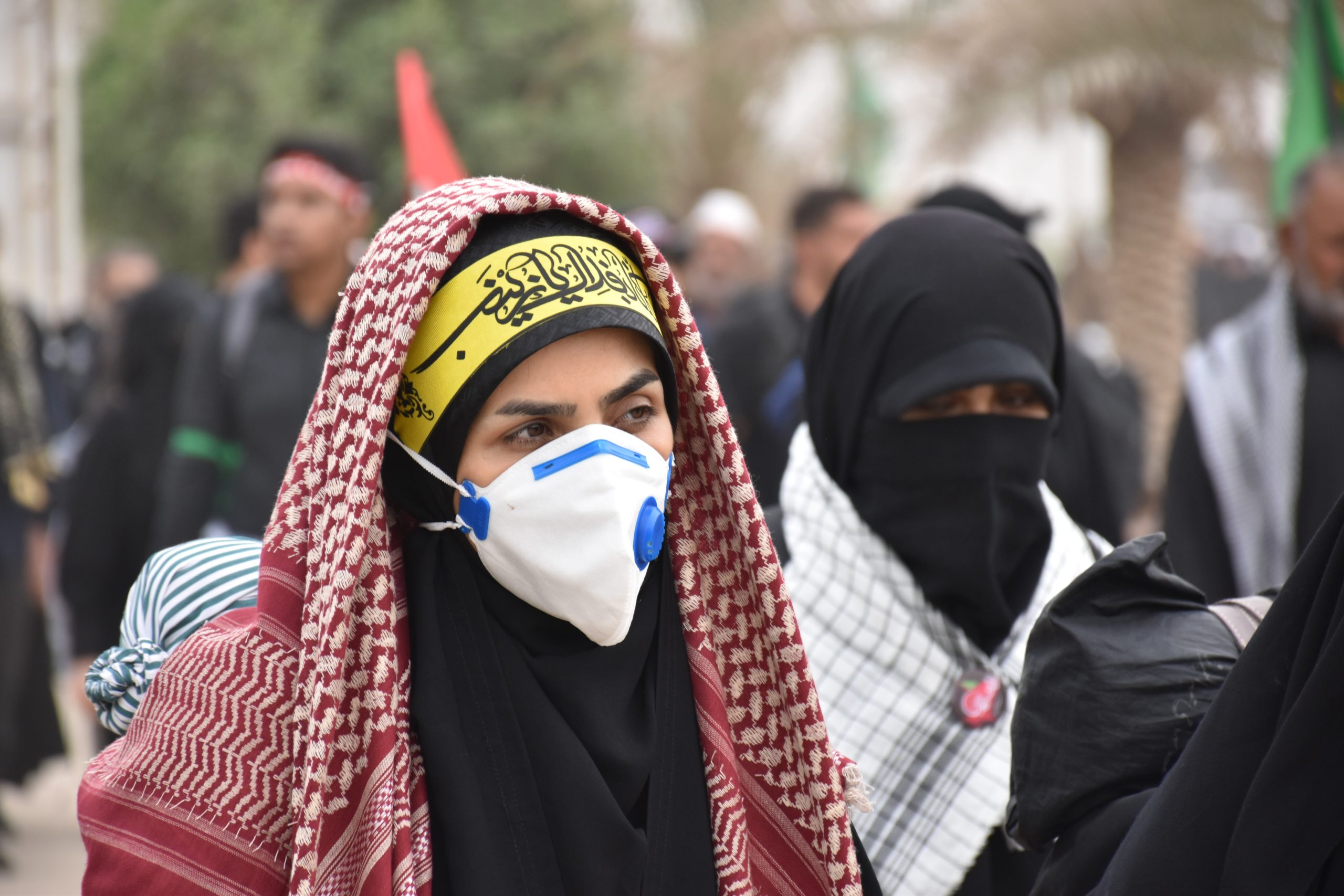Iraq has reported nearly 120,000 cases of COVID-19 since February 22 and over 4500 deaths. While the public’s initial perceptions of government measures were positive, the Government of Iraq (GOI) has come under increasing fire as the crisis has worn on and the public mood is now anxious, uncertain and fearful. We spoke to Arwa Dagher, Data Manager at IIACSS, ORB’s sister company in Iraq, to understand more about COVID-19 in the Iraqi context.
Tell us about lockdown in Iraq.
One of the key issues around lockdown in Iraq has been the difficulty in enforcing restrictions.
Despite the shocking rate at which COVID-19 spread in neighbouring Iran the interim GOI, led by Adil Abdul-Mahdi, was slow to act and did not announce nationwide lockdown until the end of March, a full month after the first cases were reported.
Even then, enforcement of COVID-19 related restrictions has proved difficult. On the one hand, we have seen individual resistance: with little job security or support from the state to fall back on, many of those working in the informal economy have felt unable to stay at home during curfew. On the other hand, Iraq’s federal government system – which places much decision-making power in the hands of local authorities – has meant a lack of uniformity in applying restrictions across Iraq’s 19 governorates. This has only increased confusion and uncertainty around the spread of the virus and how to prevent it.
How have people evaluated the government’s response?
The public has, on the whole, been positive about the GOI’s COVID-19 response. ORB’s research has found widespread support for measures such as curfews (where they are imposed) and awareness campaigns which have reassured people that the appropriate steps are being taken to deal with the pandemic.
There are, however, signs of growing discontent around perceptions that the country has inadequate medical supplies to treat the sick and the GOI to offer sufficient economic support to those who are unable to work because of lockdown. The GOI has faced further criticism for the ‘haphazard’ way in which restrictions have been applied and for failing to make decisions on the basis of sound scientific evidence.
What is the mood of Iraqis more broadly?
One of anxiety, mostly: there are deep concerns about the future of Iraq, both short and long term. In the short term, Iraqis are worried about the effects of the virus on loved ones should they contract it, as well as what the impact will be on the already severely overstretched Iraqi healthcare system. People are also concerned about the effect of the crisis on their jobs, with reports in recent ORB surveys of a dramatic decrease in activity in all areas of the economy. As mentioned, with no government support to fall back on, many have felt that they have to work even if it means putting their health at risk.
Long term, the economy is the real worry. Even before the crisis, the Iraqi economy was fragile with 90% of government revenue reliant on oil sales. Now oil prices have plummeted, Iraqis are looking to the economic crisis in Lebanon with increasing concern, fearful that a similar situation might be on the horizon for Iraq.

Just before lockdown started Iraq was experiencing a wave of protests and civil unrest. How has the virus affected people’s desire to protest?
ORB’s recent data suggest an optimism about the new al-Kadhimi administration, with Iraqis seeing al-Kadhimi as the best candidate of those available.
Underlying issues – like poor service provision, and a struggling economy – have been exacerbated by COVID-19, but for the near future at least, people are willing to give the new prime minister a chance to deliver on his pledges.
Further, by reinstating popular military strongman Lt. Gen. Abdul- Wahab al-Saadi as the head of Iraq’s Counter Terrorism Service (CTS) at the beginning of his tenure, he has sent a message that Iraqis’ demands are being heard.
However, ORB data have also found that Iraqis remain cynical about the country’s political future overall. They seem sceptical of al-Kadhimi’s ability to change what they see as a broken political system. They feel that they have been let down by successive governments, and that al-Kadhimi’s will be no different.
This scepticism is highlighted in data from recent polls suggesting sustained Iraqi support for anti-government protests.
How are we seeing disinformation play into the crisis?
Since the beginning of the crisis, ORB has been monitoring the outputs of pro-Iranian news outlets on social media in Iraq. We have seen a significant evolution of themes, which have:
– sought to blame the U.S. for the creation of the virus (to weaken its enemies in Iran and China);
– emphasised the economic impacts of the virus on the U.S. economy;
– accused the U.S. of obstructing the efforts of the Popular Mobilization Forces (PMF) to protect the Iraqi people while simultaneously providing aid to Daesh units in Iraq; and
– extolled the virtues of resuming trade with Iran and reopening borders despite the looming threat of a second wave hitting the country.
Disinformation on pro-Iranian channels, linked to the (now defunct) Corona2Plus campaign against US-Iranian sanctions
How are IIACSS & ORB continuing to research under the circumstances?
Since the beginning of the pandemic IIACSS & ORB have enforced strict measures when carrying out face-to-face interviewing, which includes providing all our employees with face masks, gloves and hand sanitisers, ensuring that all facilities are disinfected, and that all employees or research participants maintain a two-metre distance – we have remodelled our work spaces and interviewing facilities to allow for this.
We have made sure that teams adhere to local lockdown guidelines and have continued face-to-face interviewing only in strict accordance with global health guidelines. We have also made sure that all research is carried out by local teams to avoid crossing governorate lines. On this basis, we are currently able to guarantee 2500 face-to-face interviews per month.
At the same time, we have increased capacity for telephone (CATI) interviewing by wholesale investment in terms of technology and personnel. We now have capacity for 6000+ CATI interviews per month.
For qualitative research, IIACSS & ORB have conducted interviews over the telephone/internet as much as possible. As such, our qualitative research capabilities remain unaffected.
ORB has partnered with IIACSS since 2004. Together, we have completed over 80,000 face to face interviews, 250 focus groups and 150 in-depth interviews. We have access to all 19 governorates of the country, with field supervisors and interviewers who are permanently based across the country. ORB and IIACSS work closely to provide our international clients with the highest quality data, quality-assured by our proprietary ARC data integrity software.
For information on ORB’s current work, or discuss a potential project, get in touch using the Contact page. To read more from our ‘In Conversation’ series, head to the Field Notes section. To read up about ORB UK’s latest UK Covid-19 tracker results, head to our Insights page.

